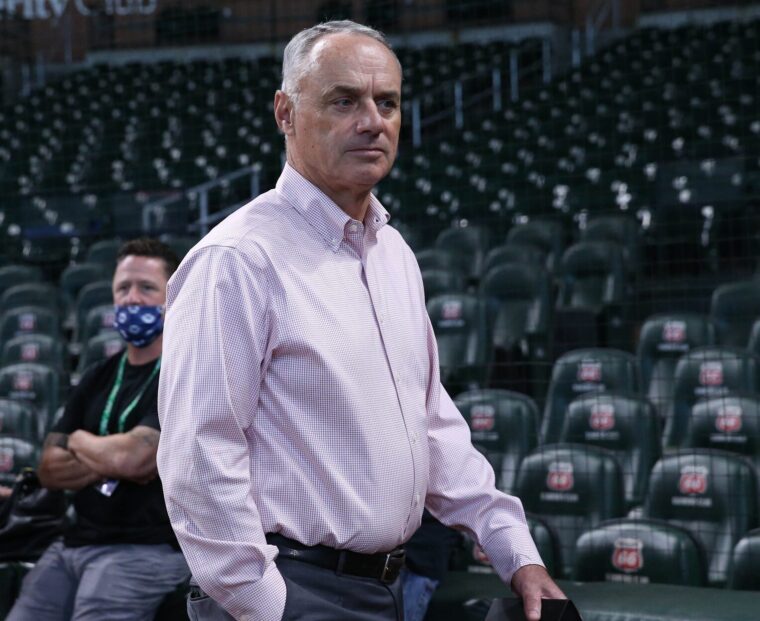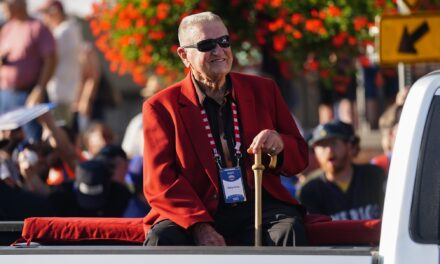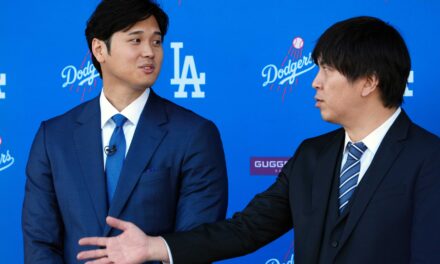
Troy Taormina-USA TODAY Sports
Major League Baseball has aspirations to expand to 32 teams, according to Commissioner Rob Manfred. The commissioner has also indicated that any expansion will not take place until the stadium messes in Tampa Bay and Oakland are sorted out.
Las Vegas is considered the odds-on favorite to be the new home of the Athletics, unless the city of Oakland agrees to provide the green and gold a new home (which is highly unlikely). Tampa Bay’s situation is more complicated, and no front-runner has emerged for relocation. There was speculation that the Rays would explore splitting their home games between Tampa Bay and Montreal, though that unique plan seems to have dissipated.
Several cities have begun making their pitches for expansion franchises, including Charlotte, Nashville, Portland, and Montreal. Now, according to an article by Jeff Passan on ESPN.com, Salt Lake City has entered the mix. If your first reaction is “How can that be, alcohol is prohibited in Utah?”, that’s not the case. Alcohol is permitted to be sold seven days per week in Utah, in licensed establishments that also sell food. Some teams (Brewers, Diamondbacks, Rangers and Twins) are now selling beer through the eighth inning in response to the shorter length of games, but that’s a different story.
What and who is behind Salt Lake City’s push for an MLB franchise? Big League Utah is a consortium led by Utah Jazz owner, Gail Miller, and that group is leading the effort. They cite the area’s population growth, strong economy, and history with baseball as reasons why Salt Lake City would be a good expansion city. The Salt Lake Bees, the Triple-A affiliate of the Los Angeles Angels, already call the area home, and they were 18th in Minor League Baseball attendance in 2022, averaging just under 6,000 fans per game.
The consortium has proposed building a new stadium in the Rocky Mountain Power District, a 100-acre mixed-use zone located between Salt Lake City’s new airport and its downtown. The Larry H. Miller Company is a key part of the consortium. The CEO of the Miller Company, Steve Starks, had this to say about the market (from Passan’s article):
“Salt Lake City is a major league city,” said Steve Starks, CEO of the Miller Company. “We believe that as a top-30 media market in the fastest-growing state in the country with the youngest population, that’s where our attention should be — and that we could accomplish bringing a team to the Wasatch Front.”
The cost of expansion is expected to be close to $2 billion. Salt Lake City is ready to pay that amount, in addition to the cost of the new stadium. Utah’s governor is ready to go.
“It would be, I think, a validation of everything that we’ve worked so hard to do,” Utah Gov. Spencer Cox told ESPN. “We’ve proven ourselves in a sports capacity with Olympics in 2002 and coming back in 2030 or, more likely, 2034. We’ve hosted two NBA All-Star Games. We know we can do this. It would just be meaningful for people who love this sport, who care deeply about it. We’re a baseball state.”
If MLB expands to 32 teams, it could radically realign to a conference format, similar to the National Basketball Association and National Hockey League. This may mean an East and West conference, and the end of the American and National Leagues. There would be four divisions of four teams in each conference, and the divisions would be geographically structured.
A team in Salt Lake City would be natural rivals with the Colorado Rockies and Las Vegas franchise (seems odd to say Las Vegas As, and they could change the name). The other expansion team would almost certainly be east of the Mississippi River. Of the candidate cities, Nashville appears to have the inside track, with former major leaguers Dave Stewart and Don Mattingly leading the effort, along with former manager Tony La Russa. If the Rays go to Charlotte, a division with Nashville, Charlotte, Atlanta, and Miami could make sense.
Expansion will happen. Whether fans like or do not like the potential elimination of the American and National Leagues, $4 billion is quite a payday available to MLB owners. We will have to adjust because they will not walk away from that amount of money.















